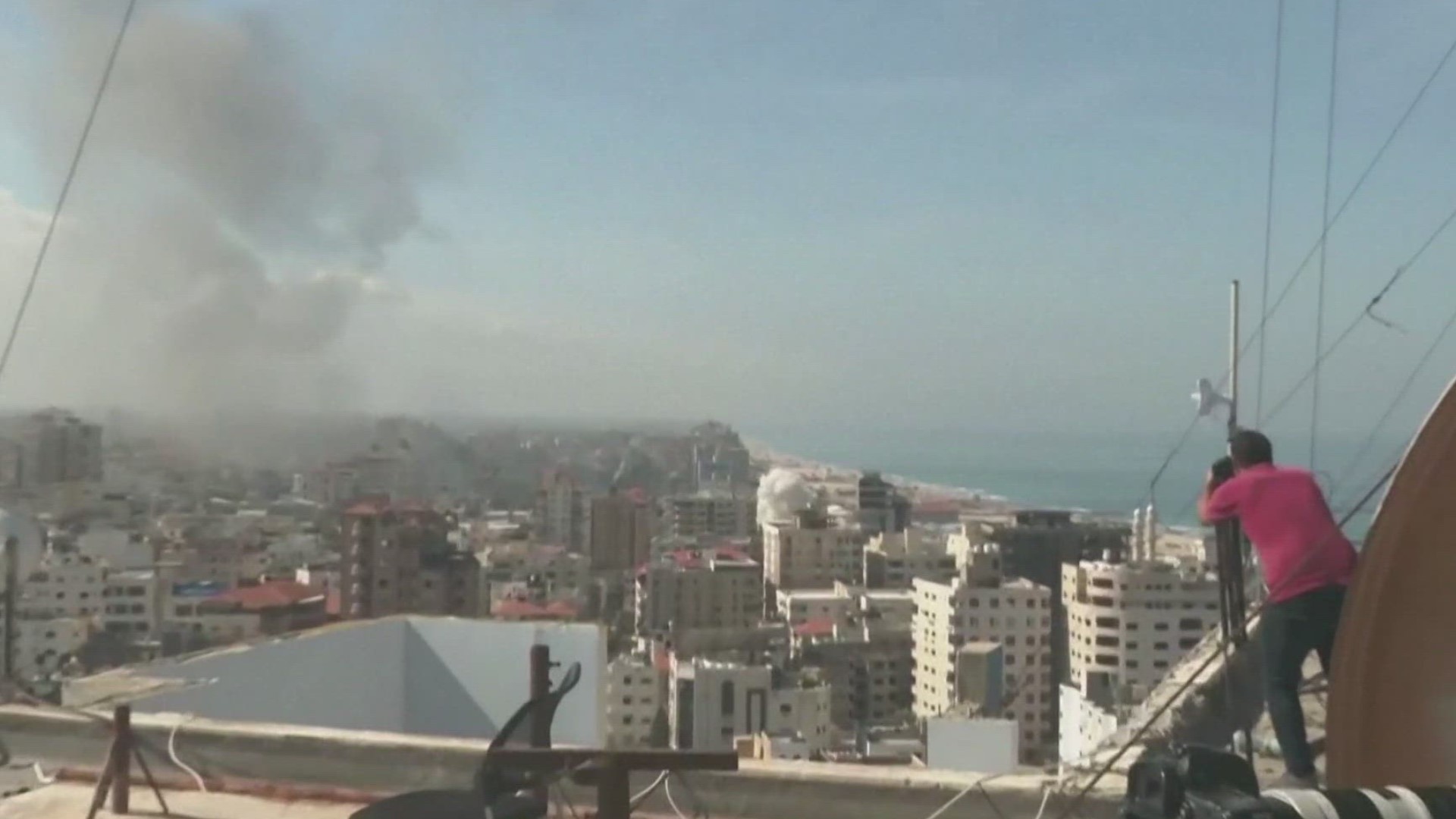MINNEAPOLIS — This weekend's surprise attack by Hamas was the deadliest against Israel in decades, killing hundreds and prompting Israel to order a "complete siege" of the Gaza Strip.
The conflict, though occurring more than 6,000 miles away from U.S. soil, has major global implications and drew an immediate response from the White House. On Monday, President Biden issued a joint statement with the leaders of Germany, France, Italy and the United Kingdom to express "our unequivocal condemnation of Hamas and its appalling acts of terrorism."
Hamas is designated as a terrorist group by the U.S. and European Union. The group first took control of the Gaza Strip in 2007, leading to an Israeli blockade and years of conflict.
"It really has been relatively quiet the last few years," said Andrew Latham, a professor and international relations expert at Macalester College, "and then all of the sudden, 'boom.' Literally and metaphorically. Boom."
Hamas carried out its attack on Israel during a crucial time in the Middle East, with Israel facing a domestic political crisis while at the same time discussing the normalization of diplomatic ties with Saudi Arabia — a regional rival of Iran.
"As the rapprochement between Saudi Arabia and Israel was about to come to full fruition, it looked like they were going to sign some kind of deal, not just normalizing relations but deepening their intelligence and security cooperation," Latham said. "As that began to loom larger in the minds of the regime in Tehran, I think they wanted to stop it."
Professor Oren Gross, the associate dean for academic affairs at the University of Minnesota Law School and expert on international law, said "the fingerprints are clearly Iranian" in this case.
"The potential agreement between Israel and Saudi Arabia is clearly something that Iran did not like," Gross said. "And one of the things that it did, is use its proxy Hamas in the south — we have Hezbollah in the north in Lebanon — to wage this monstrous attack on Israel."
Iran has denied any involvement in this weekend's attack, but a high-ranking White House adviser said the country is "broadly complicit" and that "it's something that we're going to keep looking at closely."
Eric Schwartz, a professor at the University of Minnesota's Humphrey School of Public Affairs and former Assistant Secretary of State under President Obama, said the Biden administration and Secretary of State Antony Blinken have been "very measured" in their response.
"I think he has done what he should do... Express sympathy for the lives lost, avoid hyperbole, but also in this particular instance I think expressing strong support for the people and the government of Israel is very appropriate," Schwartz said. "I think the starting point of any conversation about this is, you have to be just appalled by the slaughter of civilians by Hamas."
Despite the attack, the Biden administration has signaled that it will continue to push for normalized ties between Saudi Arabia and Israel, while also supporting the two-state solution for Israel and Palestine, which has long remained elusive.
"The government of Israel is going to have to come to grips with how to deal with the situation of the occupation on the West Bank, the situation in Gaza," Schwartz said, "in a way that is generally in conformity really with the principles of Resolution 242 following the 1967 war."
As for whether a two-state solution remains possible, Schwartz said "I'm not sure, but I hope so, and I would continue to be pressing for that if I were still in government."
"I think the growing occupation, the expanding occupation, has sort of created a little bit of a new and growing conventional wisdom that maybe there is no possibility of a two-state solution," Schwartz said. "But I don't see what the long-term alternative is."
Watch more local news:
Watch the latest local news from the Twin Cities and across Minnesota in our YouTube playlist:

